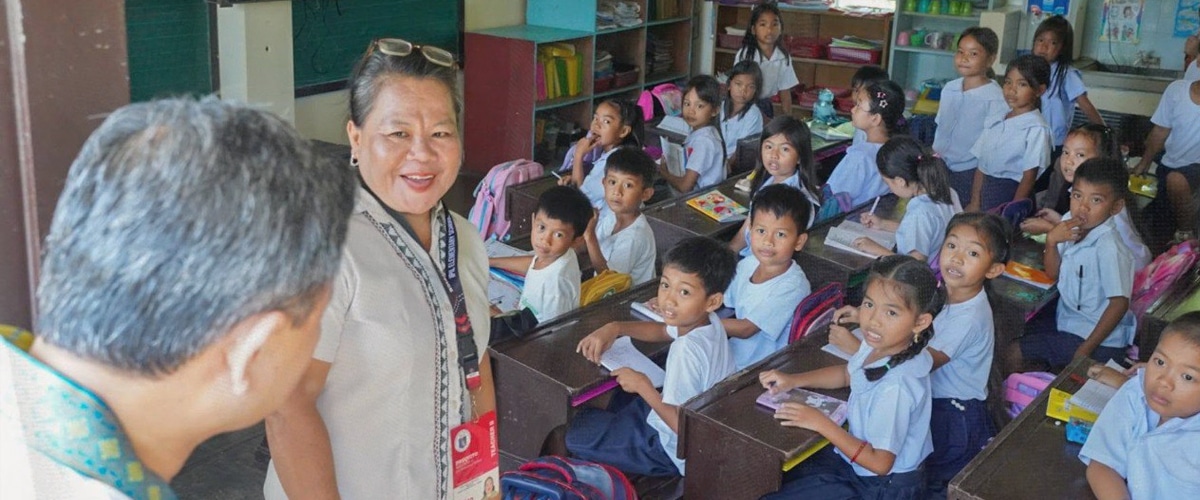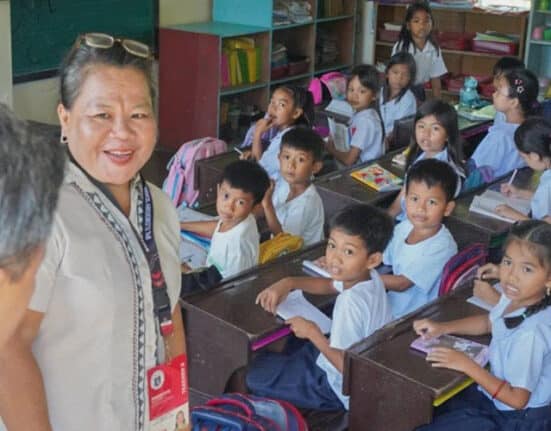PRESIDENT Ferdinand “Bongbong” Marcos Jr. admitted to a worsening state of education in the country during his State of the Nation Address (SONA), July 28.
“Malinaw sa atin ang tumambad na realidad tungkol sa ating mga kabataan ngayon,” he said.
“Ang kakulangan sa kaalaman at sa kakayahan, lalo na sa matematika, sa agham, sa pagbabasa, at sa wastong pag-unawa.”
To address this, Marcos leaned on the passing of Academic Recovery and Accessible Learning (ARAL) and Early Childhood Care and Development (ECCD)— both new laws passed by the Congress to address the foundational gaps in learning.
ARAL law program institutionalizes the Free National Learning Intervention Program, which aims to provide free tutoring and academic support to struggling students across the country.
Under this program, tutoring services through face-to-face, online, and even blended will now be made available to all learners who need help, particularly in core subjects like reading, mathematics, and science.
Meanwhile, the ECCD program aims to provide a comprehensive approach to the needs of children under five years old by integrating health, nutrition, early education, and social development services together.
Marcos also reported that they allocated a billion peso funds for the creation of more than 300 “Bulilit Centers” in Barangays to help with the early development education.
“At ang pinaka-priority ay ‘yung mga nangangailangan na pook na malalayo. At pauna lamang ‘yan. Unti-unti nating tutugunan ang matinding kakulangan sa daycare center na nabinbin mula pa noong 1990,” he added.
Infrastructure
Marcos also highlighted the administration’s achievements in the education center, particularly with regard to the infrastructure.
“Sa nakaraang tatlong taon, halos dalawampu’t dalawang libong silid-aralan ang nabuksan na,” said Marcos.
“Hihigitan pa natin ito, dahil talagang nakakaawa ang ating mga mag-aaral. Hindi na natin dapat nabibitin ang oras nila sa klase dahil sa kakulangan ng classroom.”
Marcos continued to promise 40,000 more classrooms during his term— an answer to the gaping lack of facilities in public schools.
“Katuwang ng pribadong sektor, sisikapin nating madagdagan pa ng apatnapung libong silid-aralan bago matapos itong Administrasyon. Maglalaan tayo ng sapat na pondo para rito. Alang-alang sa ating mga mag-aaral, hihilingin ko ang buong suporta ng ating Kongreso,” said Marcos.
Addressing the Digital Gap
Marcos also recognizes the existing gaps in the educational sector as it transitions more on the digital landscape in the post-pandemic normal. He also seeks to address this by aiming to provide government-issued technology aids.
“Ngayon nagdaratingan na ang mga laptop na laan para sa bawat guro sa public school. Tiniyak natin na walang anomalya sa pagbili ng mga laptop na ito,” he said.
“Nakahanda na ang mga high-tech at digital na mga materyales, mga smart TVs, libreng Wi-Fi, at libreng load sa Bayanihan SIM card. Dahil dito, handa na rin ang ating mga estudyante para makasabay sa makabagong paraan ng pag-aaral sa makabagong mundo.”
Teachers’ support and compensation
“Ang pinakamahalaga sa sistema ng edukasyon ay ang ating mga mahal na guro,” started Marcos.
“Hindi tayo tumitigil maghanap ng mga paraan upang pagaanin kahit paano ang inyong pasanin sa araw-araw.”
He also stated that they have reduced the administrative tasks that obstruct most faculties from their teaching jobs, while the rest of the paperwork will be dealt with digitally for convenience.
More importantly, Marcos addressed monetary support and compensations for the teachers.
“[…] ngayong school year na ito, makakatanggap na kayo ng kabayaran para sa inyong teaching overload at para sa inyong overtime,” he said.
Even programs like ARAL and ECCD, the tutors will be compensated for their efforts.
Philippine Education Crisis
During his speech, Marcos said that education remained the top priority of their administration.
These commitments come at a crucial time. Filipinos not only rank among the lowest in global studies like Programme for International Student Assessment (PISA) but there was also the issue of functional literacy, which saw that many Filipinos lack the ability to read, write, and do basic Math.
These highlights the urgent needs for sustained reforms in the education system.
How useful was this post?
Click on a star to rate it!
Average rating 0 / 5. Vote count: 0
No votes so far! Be the first to rate this post.
We are sorry that this post was not useful for you!
Let us improve this post!
Tell us how we can improve this post?






